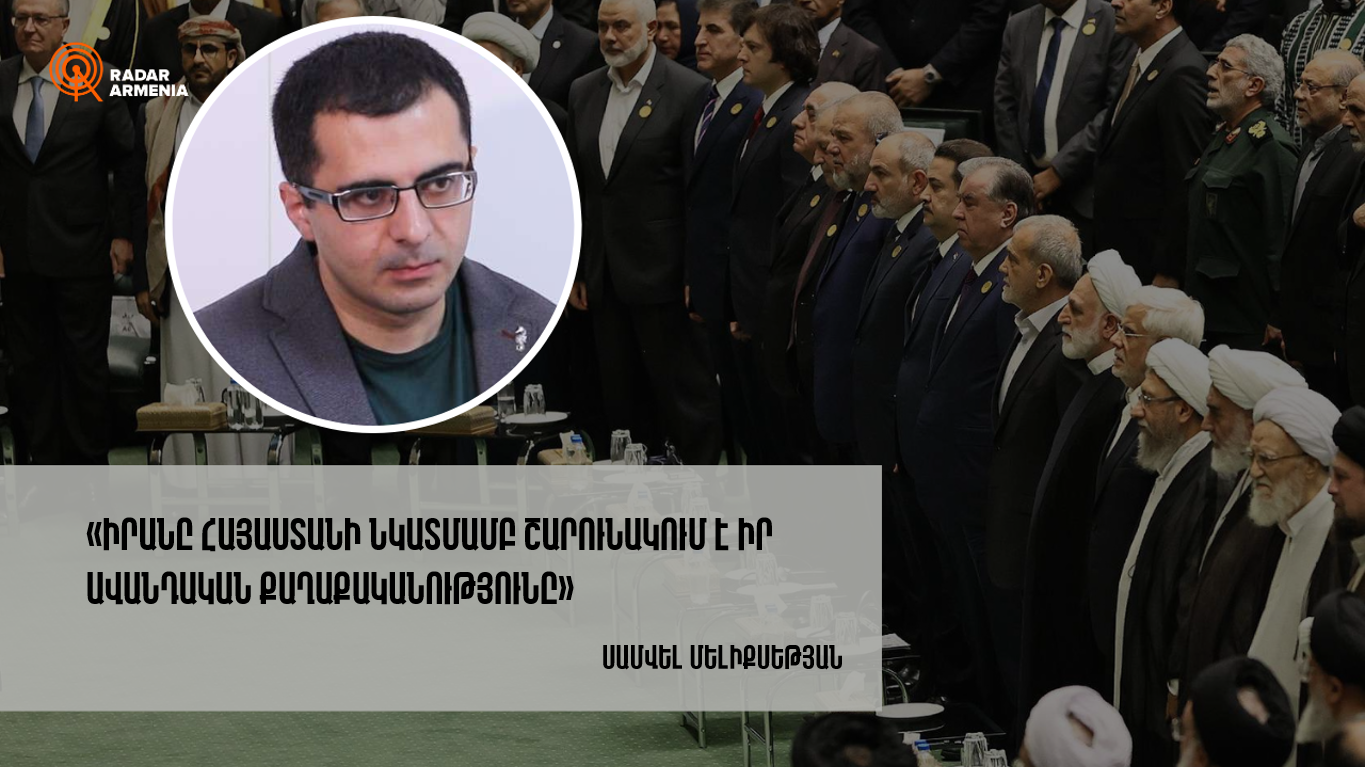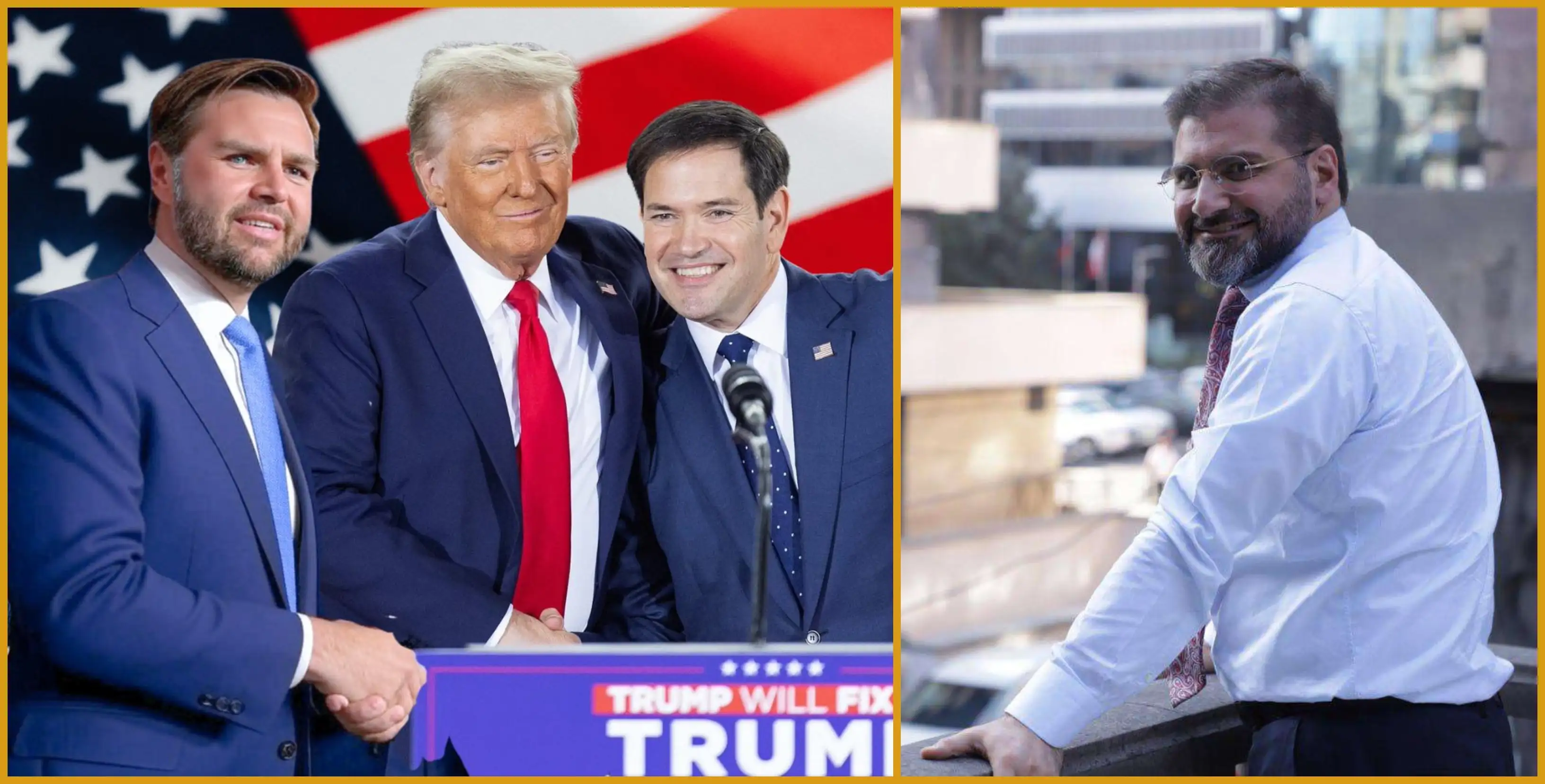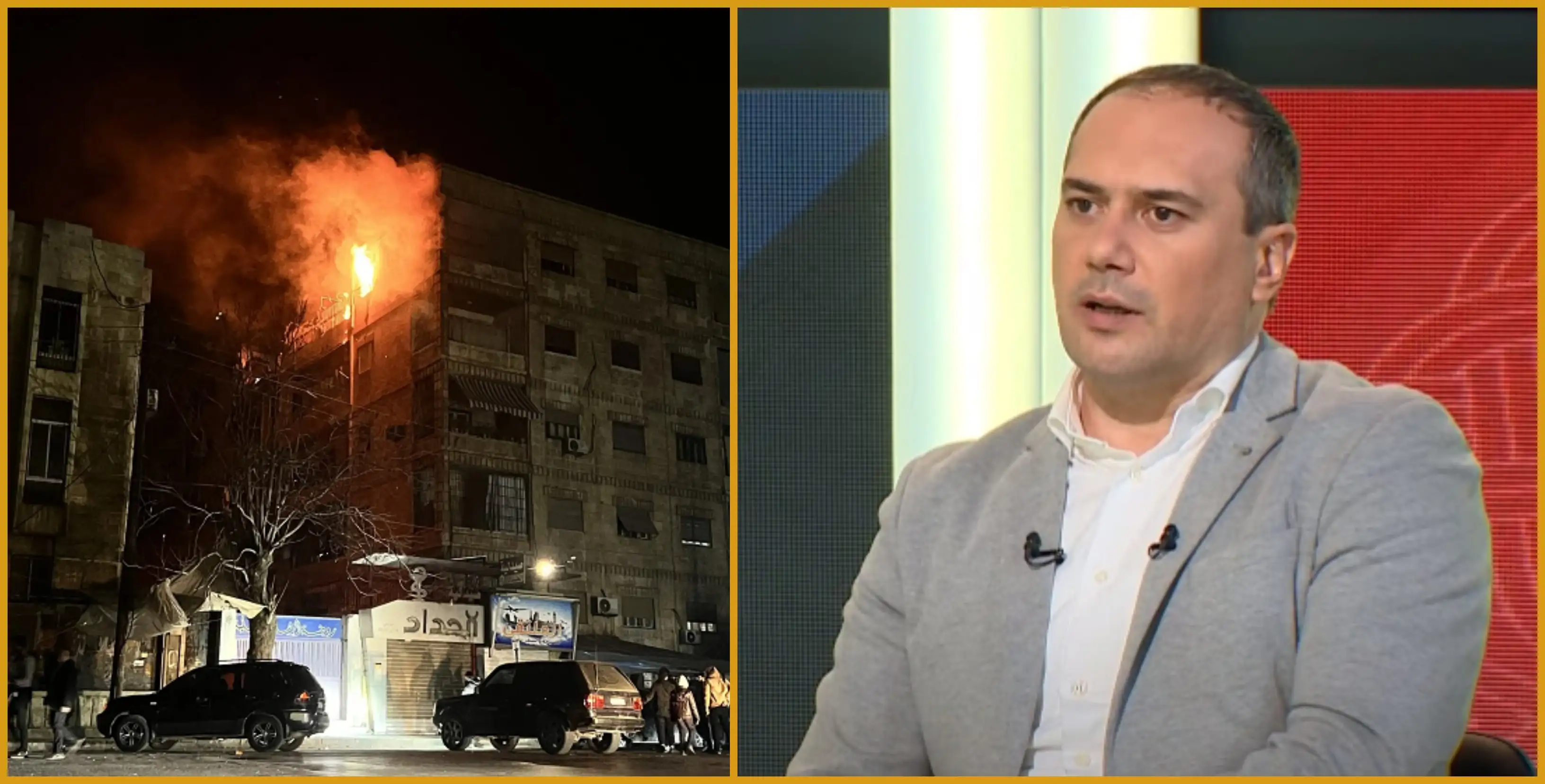Radar Armenia's interlocutor is political scientist Samvel Meliksetyan.
- Nikol Pashinyan met with the Supreme Spiritual Leader of Iran in Tehran, and his first meeting was with Masoud Pezeshkian. What is the crucial significance of this meeting in terms of strengthening Armenian-Iranian relations, considering Iran's foreign policy?
- Pashinyan's visit to Iran should not be viewed from the point of view of strengthening Armenian-Iranian relations but of reconfirming the previously reached level of relations and agreements because, after Raisi's death, various conversations arose, as well as certain developments when it was important for both sides to reconfirm previously achieved agreements: arrangements and the level of relations between the states. There were particular concerns in Armenia, as well as in Iran. However, we saw from one of Pezeshkian's election announcements that those announcements repeated Iran's style and content characteristics in the past. In other words, the border with Armenia is essential, and the territorial integrity of regional countries is an important issue for Iran. However, they are talking about the intervention of extra-regional forces. But the uniqueness of Armenian-Iranian relations is that it differs from Armenian-Russian relations in that Iran is in a much longer ideological and political conflict with the West than Russia, being able to separate ties with Armenia from that context because the mere existence of Armenia is an essential factor for Iran, as is the existence of the Armenian-Iranian border. Also, it is crucial for Armenia. It is clear that in 2020, Iran's position was the main reason why Azerbaijan, having the opportunity to open the so-called "Zangezur Corridor" from a military point of view, did not go that way, and the topic was closed that way. Today, there are clear grounds that Armenian-Iranian relations will maintain their former character because both sides are interested.
- The newly elected president of Iran emphasized the consistent efforts to establish peace and stability in the region. What does this mean?
- These are Iran's old statements and are meant to reaffirm that Iran continues its traditional policy towards Armenia and the region. Iran has always spoken this language with peace, stability, and territorial integrity principles. The same is the case of Artsakh; However, some Iranian experts say that the Armenian audience, as if the border it had with Artsakh is significant for Iran, Iran's statements are very unambiguous. This approach has been repeated in recent decades. I don't see anything new here. As I mentioned, there were meetings and statements for common approaches, understandings, and clarifications of some issues. In this regard, both sides approach the problems with mutual understanding.
- The Ministry of Defense of Azerbaijan, reacting to the words of Turkish President Recep Erdogan that "Turkey can enter Israel in the same way as it entered Karabakh, Libya," noted that the statements about the participation of soldiers of any country in military operations have no basis. What is happening in Turkish-Azerbaijani relations?
- As for the Turkish-Azerbaijani relations, of course, there is a particular temptation to draw far-reaching conclusions, but inevitable disagreements are evident, especially when Erdogan did not go to Shush, the summit of the Union of Turkish States, citing the football match as the reason. After that, a telephone conversation between Pashinyan and Erdogan took place. Now, after a break of two years, the match between Rubinyan and Kilic is on. We see that there is a certain tension in Azerbaijani-Turkish relations. First, these statements are related to the Israeli-Palestinian conflict and Turkey's and Azerbaijan's very different positions. Turkey is a leading state in the Islamic world, fighting against Israel for the rights of the Palestinians, while Azerbaijan maintains close economic and military-technical relations with Israel. Of course, Azerbaijan cites these relations because victory could not be recorded in 2020 and 2023 without Israel's military-technical and professional assistance. But in my understanding, there are years of some debate here.
By mentioning the fact "how we entered Karabakh and Libya," Erdogan wants to show that without Turkey's political support, Azerbaijan would not be able to solve the Artsakh issue in its favor, even with Israel's military-technical assistance. Here, the basis of the debate is clear: the differing approaches of Turkey and Azerbaijan to the Israel-Palestine issue. And since the conflict tends to develop, this circumstance can be motivational in separating Armenian-Turkish relations from the process of Armenian-Azerbaijani relations. Of course, for the Armenian side, this could be the biggest problem and the most positive possible result, but it is clear that it does not depend only on the will and wishes of Armenia. And there is a certain inertia that is very difficult to overcome. We need to see what the outcome of the Rubinyan-Kilch match will be for Armenia. Opening the Armenian-Turkish border for citizens of third countries and persons with diplomatic passports is possible. In that case, this is an essential small symbolic result.
Further international developments will already show in which direction these relations will develop. If the Israeli-Palestinian conflict continues, heats up, and new fronts are created, there will be a specific cooling in Russian-Turkish-Azerbaijani relations. However, the main task of diplomacy for the opposing side should be to take advantage of such factors and ensure maximum results. In this case, these are small achievements in the Armenian-Turkish "track," unrelated to the Armenian-Azerbaijani process. If Armenian diplomacy succeeds, it will be an outstanding achievement.
Hayk Magoyan


















